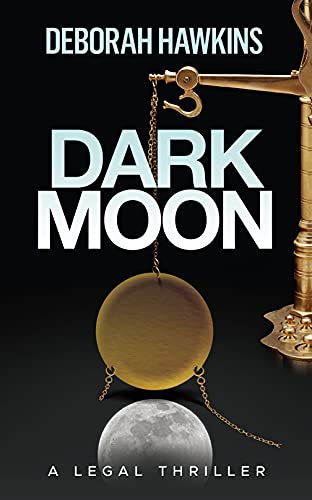By Len Edgerly, Contributing Editor
But for eBooks, war fatigue might have kept Brian Mockenhaupt from publishing a story that should never be forgotten.
A former Army infantryman who served two tours with the 10th Mountain Division in Iraq, Mockenhaupt is a contributing editor at Reader’s Digest and Esquire and holds a Master of Fine Arts degree in nonfiction from Goucher College.
He has reported extensively on military and veteran affairs for The Atlantic, and he serves as nonfiction editor for The Journal of Military Experience.
In April of 2011 he spent 10 days at a U.S. Marines outpost named Patrol Base Dakota, located in Helmand Province in southern Afghanistan. The unit had taken two casualties a few weeks before he arrived, and that was the story Mockenhaupt intended to write.
 “I had been wanting to write this story for a long time,” he told me in an interview on November 12th, the day after Veterans Day. The story centers on a phenomenon that few civilians can grasp.
“I had been wanting to write this story for a long time,” he told me in an interview on November 12th, the day after Veterans Day. The story centers on a phenomenon that few civilians can grasp.
“When leaders die, someone has to step into their position and oftentimes immediately, under fire, before they have time to really process what is going on,” Mockenhaupt said. That’s just the way war works, he added.
While he was part of the media, he had also worn the uniform, and this helped him to overcome suspicions that Soldiers sometimes harbor against journalists. He also went out on daily patrols with the Marines, which meant that he had just as good a chance of stepping on an improvised explosive device (IED) as they did.
It was in this setting that Mockenhaupt did respectful reporting on the deaths of two Marines, Staff Sergeant Jimmy Malachowski and Corporal Ian Muller. Their loss had a powerful effect on members of the unit, especially on Sergeant Tom Whorl, who took over leadership when Malachowski stepped on an IED.
The three Marines were more than comrades-in-arms. They had become close friends during training before their deployment, and their families were in frequent contact before and after gray cars bearing Marines had brought home terrible news to the next of kin.
Stories like that of the Marines of Patrol Base Dakota are reminders of the human toll taken year in and year out by America’s longest war.
But you may have noticed that the war in Afghanistan did not figure prominently in the recently concluded U.S. election campaigns. Likewise, even a journalist as talented and well-established as Brian Mockenhaupt found war fatigue to be an obstacle when he began offering his story to magazine editors.
In fact, he found no takers. Period.
His story might never have reached a wide audience if Mockenhaupt hadn’t been urged by a friend to try Byliner, a San Francisco startup that publishes mid-length fiction and nonfiction in eBook formats.
“It turned into an eBook project after I got turned down by about five magazines,” he said. “It was in no way intended to be an eBook project, and it really couldn’t have turned out any better.”
For one thing, Mockenhaupt was able to expand his story well beyond the 8,000 words that would normally be the top length in a magazine like The Atlantic. As published by Byliner last month, The Living and the Dead is 65 pages or approximately 22,000 words.
“I was able to give it the space it needed,” he said.
As it turned out, the time it took to connect with Byliner also deepened the story.
“If I had written the story after I came back from Afghanistan,” Mockenhaupt said, “it would have been a story about what it’s like on the battlefield for a young leader to take over under those stressful conditions. The last third of this Byliner piece is about what happened when they came home.”
I won’t spoil the eBook’s dramatic final scenes by revealing exactly what befell Sergeant Whorl back in the States. You will need to read the story yourself to understand and experience the challenge he faced returning to normal life with his family.
It’s a tribute to Byliner that this seasoned magazine journalist found his story shaped and strengthened by experienced editors on a par with those he works with at major print magazines.
“It was a wonderful experience,” he said. Byliner editors who had been recruited from magazines helped him make stylistic improvements and did careful copyediting that made his piece as strong as possible.
As for the financial aspect, the readers are still out. Instead of a flat payment for the piece, which would be normal practice in traditional magazines, Mockenhaupt will receive a third of the proceeds from sale of the eBook at the Kindle Store, Apple’s iBooks store, Barnes & Noble, and Kobo. Byliner and the eBook retailers split the other two-thirds of the revenue.
I’m glad to see that, as of the time I’m writing this, The Living and the Dead is the Number 2 top-selling Kindle Single at Amazon.com. So Mockenhaupt’s debut as a long-form eBook article author is off to a strong start, even as it is clear that he wrote this story for more than the money.
“I care about all the pieces that I write about,” he said, “but this one much more so than the others.”
I guarantee that, if you read this eBook, you will experience more than war fatigue the next time you hear news of a young Marine’s death by I.E.D in southern Afghanistan.
And, in hopeful news about publishing, we can thank new outlets for long-form nonfiction, like Kindle Singles, Byliner, and the Atavist, for bringing stories like Brian Mockenhaupt’s to readers who otherwise might never have had a chance to read them at all.
 Our contributing editor Len Edgerly blogs at The Kindle Chronicles where you can hear his interview with Brian Mockenhaupt at 14:15 of Episode 224.
Our contributing editor Len Edgerly blogs at The Kindle Chronicles where you can hear his interview with Brian Mockenhaupt at 14:15 of Episode 224.












